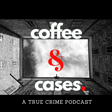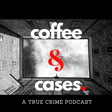
E217: Leon Laureles
In May, 1996, two 911 calls came in concerning a car that was ablaze on a rural road in Brownwood, Texas. When first responders arrived, they quickly realized that this wasn’t a car accident. This was a murder. While Leon Laureles’s death came as a shock to all who knew and loved him because of the kindness and joy he brought into their lives, they soon discovered that he had been harassed and intimidated in the weeks before his death and was fearful. But how far did the fear extend? And are justice and truth still within reach?
Justice for Leon Facebook Page Link
Box in the Basement Podcast Link
Please also consider supporting Coffee and Cases by joining us over on our Patreon page! Are you up-to-date on all our regular content? Get access to monthly mini-episodes as well as one full solved case per month by joining today! Be a part of the C & C Fam by going to https://www.patreon.com/coffeeandcases to register!
BlendJet Offer: Use my special link (https://zen.ai/coffeeandcasesblendpromo) to save 12% at blendjet.com. The discount will be applied at checkout!
Nom Nom: Try Nom Nom today; go to https://trynom.com/coffeeandcases and get 50% off your first order plus free shipping

